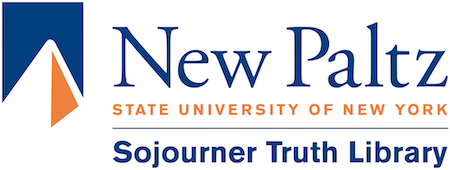Sojourner Truth Library Anti-Racist Activities
Sojourner Truth Library Anti-Racist Activities
In June of 2020 the Library came together to create a Statement on Racism and Racial Violence. In it Library staff and faculty reaffirm
our determination to ensure equitable, inclusive access to our resources, our commitment to anti-racist practice, and our pledge to use our skills and resources to advance the production of knowledge for social justice.
In the 12 months since then the Library and its people engaged in activities and practices intended to live up to that pledge. The activities below are not in order of importance. All are significant and substantial and valid in whichever aspect of the work they fall.
Removal of racist subject headings
The SUNY Library Consortium Cataloging project joined with the national “Change The Subject” initiative to replace the phrase “illegal aliens” with “undocumented immigrants” and/or “non-citizen”. This is noteworthy because it is an almost unique departure from Library of Congress designated subject headings.
Antiracism Campus Read
In March 2021, the Library sponsored an Antiracist Campus Read, led by librarian Jen Rutner and faculty colleagues Adrianna Martinez, Anthony Dandridge, Asilia Franklin-Phipps, Robyn Sheridan, Andrea Gatzke, and Nancy Campos. The program ran for four weeks and included supported discussions of three principal texts: Citizen: An American Lyric by Claudia Rankine; Nobody: Casualties of America’s War on the Vulnerable, from Ferguson to Flint and Beyond, by Marc Lamont Hill; and selected poetry by Danez Smith.
Library Reading Group
In summer 2020 Madeline Veitch coordinated a group that met over 10 weeks to read and do the reflective writing prompts in Layla Saad’s Me and White Supremacy: Combat Racism, Change the World, and Become a Good Ancestor. We used “The Circle Way” as an organizing structure. This model emphasizes a focus on shared intentions and accountability over individual experience and uses specific roles and strategies to help keep the group focused and safe for all participants.
Participants were all librarians, though there was a preliminary group that met to discuss shorter articles on antiracism and the long history of racism in academic libraries and CSEA staff did attend those two sessions.
Collection Building
The Library emphasizes adding material to its collections that centers consistently underrepresented cultures and populations. Librarian curated book displays center people of color, indigenous people, latinx/Hispanic people.
Representation in staffing
In a field traditionally dominated by white women, the Library seeks to increase the representativeness of our staff. This has been most possible through the hiring of student assistants, where we have actively sought to hire members of underrepresented groups, particularly people of color, religious and sexual minorities. It is noteworthy that much of the impetus to this work has come from student assistants themselves.
Individual and Personal Antiracism work
Particularly noteworthy to me as Dean, has been the individual work many library staff have done and continue to do. This includes watching videos and reading material that centers non-majority populations. Many staff also noted they seek out minority/women owned businesses in their private dealings. Many classified staff deserve special credit, because they devote time outside of work obligation to these and other antiracist actions. I’m particularly grateful to them and to everyone among us who lives this commitment in personal life as well as NYS service.
Workplace
In the workplace we are mindful that antiracism and inclusiveness requires awareness that certain cultural “norms” are racialized. Behavior words such as “welcoming” and “professionalism” can easily be normalized to majority culture standards. In working with staff, particularly student assistant staff, we seek to be especially mindful of ways mainstream/white values regarding smiling, grooming, and dress can be used to discriminate in the workplace. Through these discussions we continue to strive for a workplace that is genuinely inclusive of a range of cultural norms.
Racism is hierarchical. To be antiracist is to be aware of and resistant to hierarchical thinking in relations with individuals and groups. During the pandemic we resisted the temptation to segregate student workers and regular staff. We found instead ways we could work and take breaks together in ways consistent with campus guidelines for social distancing and other public safety measures. We consult with and include custodial staff in social and work matters, ranging from policies like food in the library, to celebrating milestones like retirements and student assistant graduation.
